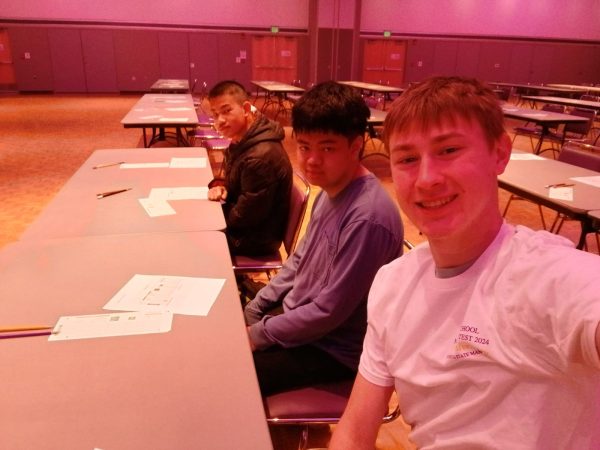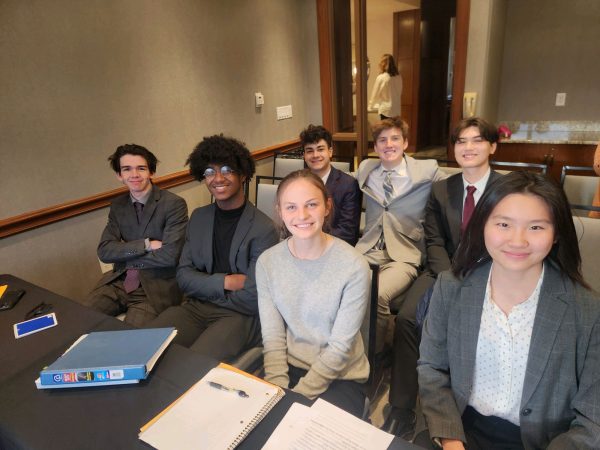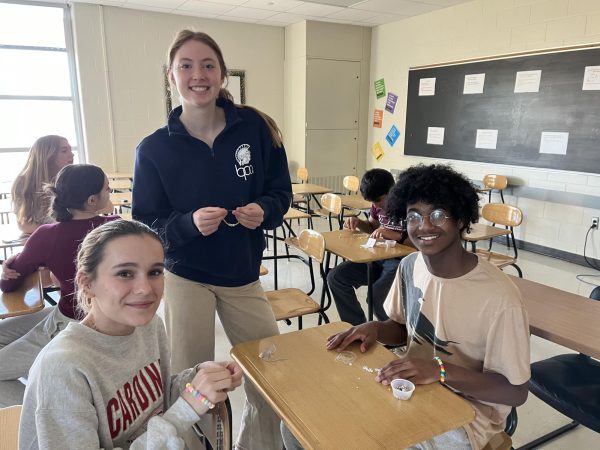Pocketing points – cheating on Pocket Points
Since the emergence of the app Pocket Points students have found ways to cheat the system and earn more discounts at stores.
Give high school students a new gimmick to get free stuff on their phones, and it takes less than a month for them to cheat on it.
A number of students have exploited the new app, getting tens of thousands of Pocket Points, overtaking the leaderboard and potentially redeeming them for thousands of small pizzas, two for one deals and free drinks.

The students used a number of creative, millennial ways to cheat on Pocket Points. “You can spoof your location using a fake GPS to make it seem like you’re on the UIowa campus, use an app like GMD Speed Time to make the clock run faster or just modify the number of points you have directly with something like GameKiller or GameGuardian,” said Kevin Liu ’18, a computer programmer who has hacked flash games before.
[I hacked Pocket Points] to prove it’s possible
— Evan Geng '18
According to Brent Glowatch, an Administration Manager at Pocket Points, changing your phone’s time and date setting is the most common way of cheating.
Jeff Finn, an English teacher who has had discussions with students about hacking Pocket Points, believes that stealing Pocket Points, coupons and discounts is equivalent to stealing money.
“If you wouldn’t steal nuggets off the counter at Chick-fil-A, then you shouldn’t steal points that you then trade in for nuggets,” said Finn. “The next thing they tend to say is that ‘Chick-fil-A can afford it,’ which is just rationalizing stealing.”
However, the Pocket Points administration still sees the good.
“Even if they have users who didn’t earn their points honorably, the business will benefit from having that user come into their store,” said Glowatch.

Evan Geng ’18 views cheating as something different.
“[I hacked Pocket Points] to prove it’s possible,” Geng said.
Liu hacked pocket points because he was bored. “I don’t even shop at these places, so it was purely for fun,” Liu said.
Finn, who has tried a rewards-based system himself, thinks that the premise of Pocket Points is the issue.
“I think it is dangerous to pay people for things they should do anyway as a good student and a decent person…People have a tendency to believe that paying people money is a good way to get them to do things, when in reality other things like social expectations, the sense that you are getting better at something, freedom of choice and feeling like you have a purpose for what you are doing are all much more motivating,” Finn said.
On the other hand, it’s good to know our computer science education is working.
Your donation will support the student journalists of West High School. Your contribution will allow us to purchase Scholarship Yearbooks, newsroom equipment and cover our annual website hosting costs.

Mason Wang is a Broadcast Copy Editor. This is his third year on staff. If you’re reading through staff bios right now, you must be really bored. Since...













John • Sep 6, 2019 at 10:26 am
Word